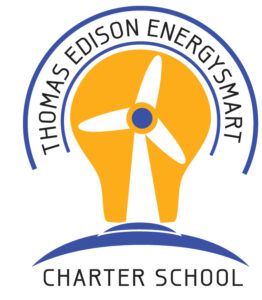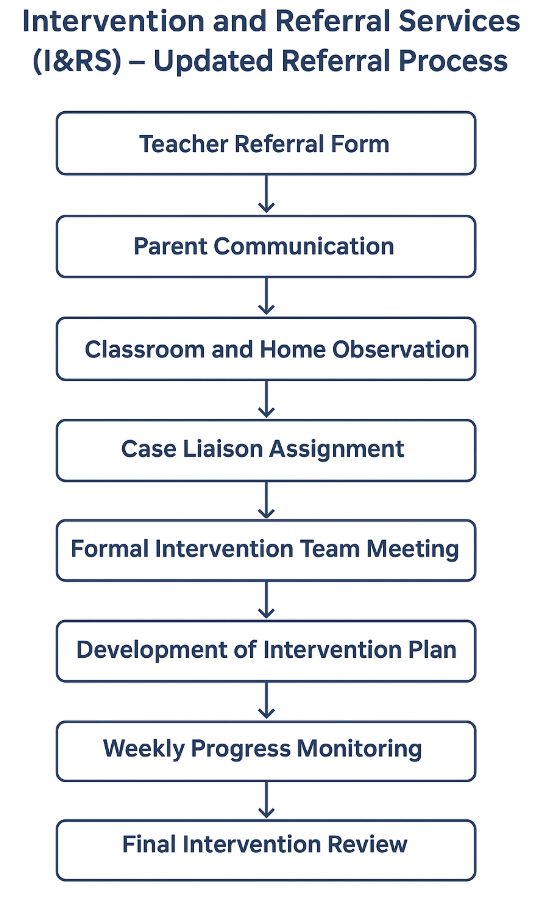Intervention and Referral Services (I&RS)
TEECS Mission Statement
Thomas Edison EnergySmart Charter School (TEECS) believes that all students are capable of academic and social excellence and that “one size does not fit all.” The purpose of the I&RS team is to collaborate effectively with teachers and parents to develop learning strategies and behavior intervention plans that help students reach their maximum potential. The team assists general education teachers in providing targeted interventions, differentiated instruction, and behavior supports to ensure every student can succeed academically, socially, and personally.
Pre-Referral Process
The I&RS team provides a structured, procedural step to identify and support students who are struggling academically, socially, or behaviorally, prior to any special education referral. This process is part of TEECS’s comprehensive Special Education Evaluation Model and is designed to:
- Provide struggling students with high-quality, individualized instruction.
- Modify interventions to meet the student’s academic, behavioral, and social-emotional needs.
- Identify external factors (e.g., socioeconomic, linguistic, or cultural differences) that may impact student performance.
- Introduce a robust progress monitoring model to evaluate the effectiveness of interventions.
The pre-referral process ensures that interventions are data-driven, research-based, and closely monitored, helping the I&RS team and classroom teachers implement strategies that improve overall instructional quality.
Referral Process and Procedures
The I&RS referral process at TEECS follows these structured steps:
1. Teacher Referral Form
The referring teacher completes a written referral form documenting academic, behavioral, or social concerns.
2. Parent Communication
The referring teacher schedules a meeting with the parents/guardians to inform them about the pre-referral services and the intervention process.
3. Classroom and Home Observation
I&RS team members conduct observations in the classroom and/or at home (if necessary) to gather contextual data about the student’s learning and behavior.
4. Case Liaison Assignment
A case liaison is assigned to collect and organize all relevant student information, including assessment data, previous interventions, and progress notes.
5. Formal Intervention Team Meeting
A team meeting is scheduled to discuss the case. Roles are assigned in advance, including:
- Facilitator
- Recorder
- Case liaison
- Timekeeper
6. Development of Intervention Plan
- During the meeting, the team develops a formal intervention and monitoring plan, specifying:
- Targeted strategies or accommodations
- Expected outcomes
- Progress monitoring schedule
- Responsible staff members
7. Weekly Progress Monitoring
Follow-up meetings occur weekly to review the student’s progress. Modifications, including alternate research-based interventions, may be made during a 4–6 week intervention period.
8. Final Intervention Review
At the end of the 4–6 week period, the I&RS team reconvenes to assess the effectiveness of the intervention.
- If the student shows adequate progress, the intervention may continue or be concluded.
- If the intervention is unsuccessful, the team initiates the Referral Process to Special Education, in compliance with NJDOE regulations.



